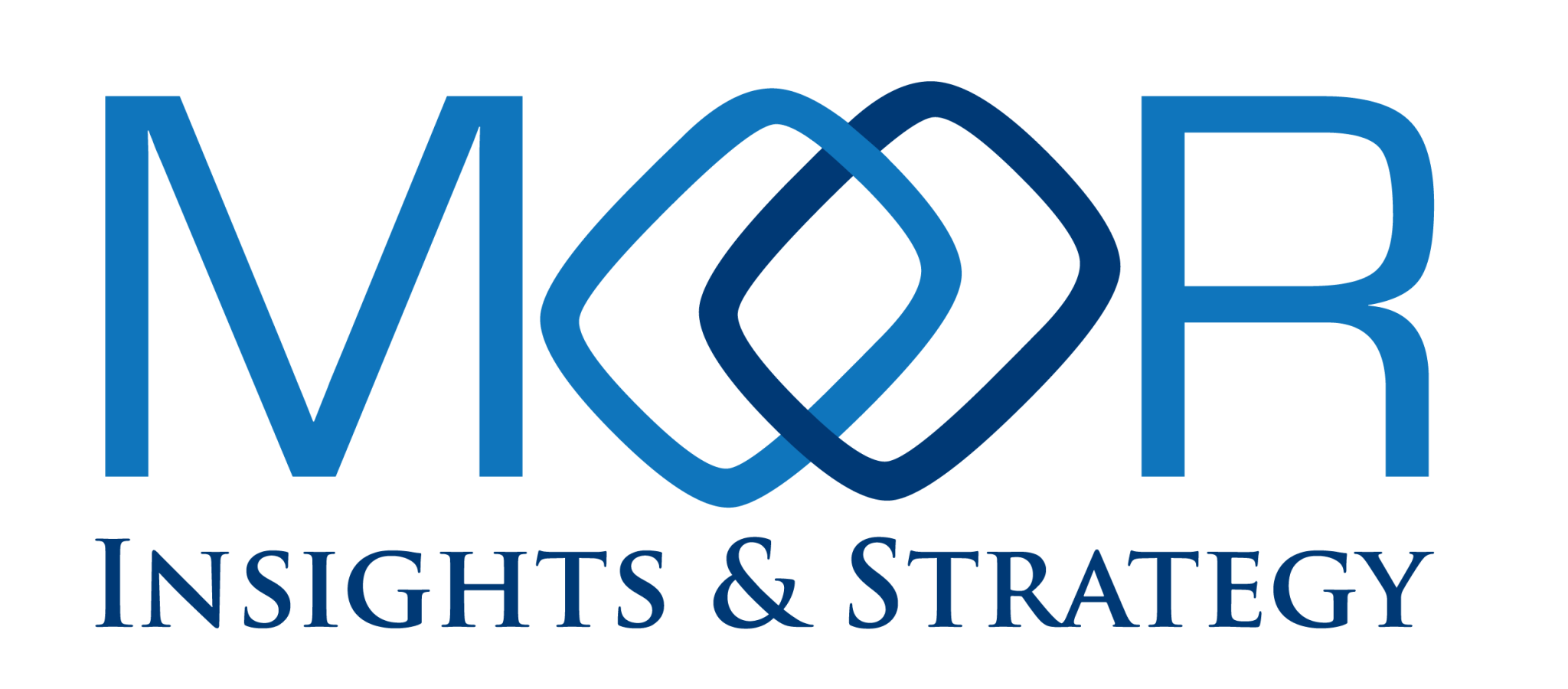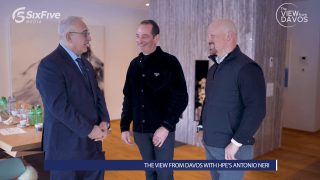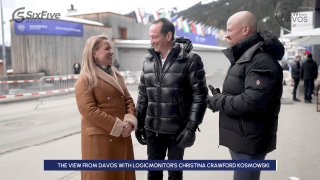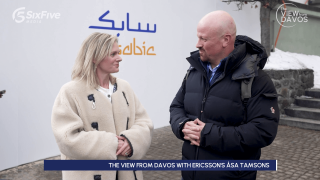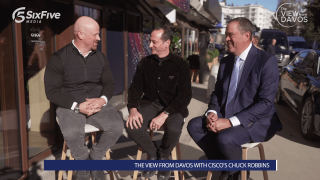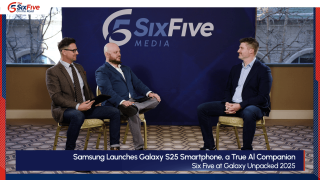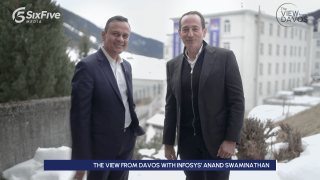On this episode of Six Five On the Road at Oracle CloudWorld 2024, hosts Daniel Newman and Patrick Moorhead are joined by Oracle‘s Jason Maynard, Executive VP, Revenue Operations for a conversation on Oracle’s unique approach to artificial intelligence.
Their discussion covers:
- The foundational elements that distinguish Oracle’s AI strategy from competitors.
- How Oracle integrates AI across its product and service offerings.
- The role of data privacy and security in Oracle’s AI developments.
- Oracle’s vision for the future of AI in enterprise solutions.
- Real-world applications and success stories of Oracle’s AI technology.
Learn more at Oracle and Oracle CloudWorld 2024.
Watch the video below, and be sure to subscribe to our YouTube channel, so you never miss an episode.
Or listen to the audio here:
Disclaimer: Six Five On the Road [is for information and entertainment purposes only. Over the course of this webcast, we may talk about companies that are publicly traded and we may even reference that fact and their equity share price, but please do not take anything that we say as a recommendation about what you should do with your investment dollars. We are not investment advisors, and we ask that you do not treat us as such.
Transcript:
Patrick Moorhead: The Six Five is On the Road in Las Vegas, Nevada, we are at Oracle CloudWorld, and Daniel, guess what? We are talking about cloud, as you would expect, but there’s a tremendous amount of discussion about AI, and I got to tell you, the fireworks … You always like to have fireworks at a show, and we definitely got those.
Daniel Newman: Over the last decade that I’ve been on the road doing these events. I don’t know that I can remember a time that an event kicked off on the same day as it had its earnings, which was super interesting, because it’s always really great to see how these two things … We always say we’re like market truth tellers, we talk about the products in the industry … Industry analysts, but we always say that the street is the real truth teller about how good or bad a business is doing. And so, to see kind of a bunch of cool announcements come out, a bunch of AI stories start to emerge, and then, see how the market reacted all in one day, what a great opportunity.
Patrick Moorhead: No, it really was, and I can’t think of a better person to bring on The Six Five than Jason Maynard, with Oracle. Jason, welcome to the show, welcome back.
Jason Maynard: Thank you, it’s good to be here with you guys. Thanks for coming to Vegas.
Patrick Moorhead: Yeah. Yeah, it’s like our second home as analysts, we’re thinking about, we need to get a condo, maybe an apartment here, but thank you.
Jason Maynard: Yeah, no, it’s great to have you guys.
Daniel Newman: It is great to have you back, and by the way, in the last three years, what a ton of innovation. You’ve moved into a new role, really leading revenue for the whole of Oracle. It’s been great to watch your progression in the company, but Pat kind of said it, look, there’s some big cloud moments and big AI moments. I’m going to start with AI, because that is the thing that is the rage. Every company right now, I like to say, has an AI story. Some are better than others. Some are very obvious, like, hey, we build a GPU and sell it. That makes a lot of sense. Some are like, we have this cool AI button feature inside the app somewhere that nobody’s paying for. Oracle seems to have a very broad strategy, because you have infrastructure, you’ve got applications. Jason, I’d just love to-
Jason Maynard: Data.
Daniel Newman: … Data, I’d love to sort of hear how Oracle tells people that their AI story is different knowing that there are so many out there right now.
Jason Maynard: Yeah, no, it’s an interesting question. You’re industry analysts, so if you take a step back, though, we go through technology platforms every 10, 15, 20 years. Mainframe to mini, PC, client server, we had early internet, web 2.0, mobile, social, all these things change, and from a business standpoint, they’re all about the quest for greater productivity. How do you make your business better? And so, AI, I think right now, we’re at the almost like a Netscape browser moment. If you think about ChatGPT, it’s sort of a similar sort of inflection point in the industry, where it sort of opens everybody’s eyes up to the possibilities. But what’s interesting is, when the Netscape browser came out, there had been 30 years of work before that moment, before it sort of became mainstream. And I think that’s where I see right now, it’s a very similar analogy, that we’re at that moment where all sorts of potential and possibility is now in the eyes for consumer use cases or business.
So to answer your question, what does make Oracle different? I’ll go back to the core foundation, which is, we do data, we do core infrastructure, and we do applications, both horizontal, as well as industry, and we’re taking a strategy of embedding AI into everything we do. I like to joke, our AI strategy is not Wingman or Bolt-On or Franken AI. We’re not trying to stick it onto something like an appendage and be like, hey, we can charge you 20% more because this has got the AI thing. So internally, we talk a lot, best AI needs the best data. We’re going to get to a point, if you think about applications, will you even know you’re using AI? I hope not.
Daniel Newman: Probably not.
Jason Maynard: Probably not. No, we’re going to have agents, there’s going to be a role for those, but I think the view is that it’s going to be in everything we do. To your point, we have it in, bring your AI to the data. You have core OCI, obviously, we’re running all sorts of interesting supercomputers with Nvidia and all sorts of AI partners. But into the application layer, there’ll be agents, but there’ll also be things that you don’t even know you’re using AI, it’s just like, oh, my application is better. And so, I think our differentiation is, we do a little bit of everything in terms of AI, and it depends where you’re at in the stack, and ultimately, how we’re going to add value. Because being different isn’t good enough, it’s, what can you do with that differentiation, is, how do we bring that together for a customer so they get much more value in the relationship?
Patrick Moorhead: Some of the things we do as industry analysts is, for earnings, we go on broadcast video and-
Jason Maynard: I’ve seen you, you guys are CNBC famous.
Patrick Moorhead: … We do a few. We do a few. So anyway-
Jason Maynard: I unmute when you guys go on.
Daniel Newman: Not since yesterday.
Jason Maynard: As a former Wall Street analyst, I’m like, oh, I know those guys.
Daniel Newman: You’re just watching the ticker, you don’t want to hear until …
Jason Maynard: Well, if I see you two go on, I unmute at my desk.
Patrick Moorhead: So I’m getting ready for the show, they’re bringing me on Yahoo Finance, and about five minutes before I go on, this press release crosses the wire that Oracle and AWS are forming this alliance. So I have about 15 minutes to go through this.
Jason Maynard: We didn’t give a lot of time, did we?
Patrick Moorhead: Well, it’s not necessarily … I mean, I know how these things work, but I’m about to go on air, and I’m going through this. The good news is, it was something that was similar to what you did with Azure and Google, but I think the cool part, the provocative part, is the fact that this partner has a database that is called Redshift, and the thesis, and this is the way I tell the story was, the thesis was, well, maybe we don’t need Oracle anymore, enterprise, but here we are, huge announcement. Can you talk us through why you’re … I think I know why, you never ask a question until you don’t know the answer, but tell us about what your customer’s demanding, how did this come together? What’s the benefit to your customers?
Jason Maynard: No, I think it’s a really important moment, actually, in technology, it’s-
Daniel Newman: It’s big.
Jason Maynard: … You guys covered the industry, I mean-
Daniel Newman: It’s big, yes.
Jason Maynard: … it’s a really big deal. Issue a few texts, as well, has hell frozen over? What’s going on?
Patrick Moorhead: I said it on air.
Jason Maynard: And it’s funny, even if you go back a couple of years, Larry’s been talking about multicloud. So he signaled this era, and I think it was two CloudWorlds ago, he talked about the walled garden approach to clouds, and that the internet was open, distributed, data could freely flow between applications. Part of the name of AWS is Web Services, so if you’re old enough to remember early 2000s in computing technology, we talked about composite applications and being able to bring together all sorts of different services capabilities. And so, all of that, I think when you think about where the natural evolution of computing is going, is that, we’re not going to have walled garden clouds, that clouds are going to have to be open, clouds are going to have to be integratable.
And the reality is, Oracle customers run the most mission-critical data in the world, from defense … Intelligence organizations to telcos to banks, to, you name it, it was only logical that we could take an Oracle database on OCI and put our cloud in the other clouds. And ultimately, it’s about customer choice, it’s about, customers want to be able to mix and match. As much as vendors all would love it to be a homogenous environment and just buy from one vendor, the reality is, technology layers over time, and we live in a heterogeneous world, and so, I think this is an acknowledgement that give customers choice, give them the freedom to move their data, and frankly, give them what they need to deliver the best outcome for their business.
Daniel Newman: And there was a situation in which I think both companies came to the realization that you were doing well for the customer. And I think there is that point where it’s like, your feud aside, can we help our customers? Because we win, we had a small group with Evan Goldberg, your CEO of NetSuite, and I kind of asked that question about the implementation of AI and everything. He’s like, we think if we put it in everything and it works really well, it’s not about charging more, we’ll get more customers and they’ll spend more, and we’ll grow. And it’s kind of that, in the end … By the way, there were some wars that I thought would end sooner than AWS and Oracle would make an announcement together. So I won’t delve deeply into politics here, but actually, there were scenarios in which I thought that was possible.
So let’s talk about all this, because the market really met that announcement, what I would call a very strong quarter, I think it was 46% OCI growth, double-digit application growth, with a great response. I saw a double-digit turn, and of course, Market Minute, who knows what it’s at right now? But it was a great result, I mean, a company like Oracle doesn’t tend to move double-digit percentages on any news, ever, so people liked it. I mean, Larry was absolutely on fire, he’s talking about hundreds of data centers now, thousands of data centers in the future, he’s talking about tens of thousands of GPUs going into hundreds of thousands and millions of GPUs in the future. He’s talking about sovereign clouds and solving that. I mean, talk about putting together the infrastructure, the data, the application layer, and the opportunity … And by the way, he shut down all bear cases in like, one comment, that there is no end of this-
Patrick Moorhead: Market, market cases, yeah.
Daniel Newman: … Market bear thesis about AI, that there’s some end of this, like, all of a sudden, CapEx is over next year. He’s like, let me tell you the story about megawatt, and then, let me tell you gigawatt. And he … Talk about this, because I mean, you’re talking going from hundreds of thousands, GPUs of tens of thousands to hundreds of thousands. This AI infrastructure story is huge, I mean, it seems Oracle is incredibly bullish.
Jason Maynard: Well, I think a couple things just to touch on. So first of all, don’t bet against Larry. It’s a very important lesson. And so, I think part of this is, I think these things take time, and when you think about Oracle, Larry makes bets and investments that I would say. Take time to pay off, and he’ll do it the right way. And so, we did Gen-1, then we did Gen-2, Gen-2, I would say we’re hitting our inflection point now with Gen-2 OCI as that comes to fruition. But he tackles tough problems, and you can’t solve those problems overnight.
Look what we’re doing in … Different topic, what we’re trying to do in healthcare. I mean, these are things that he has the appetite to take on and to make long-term bets and long-term investments. And so, that’s part of what you’re saying, I think you just got to baseline that as how Larry thinks about it, there is no impossible, we’re going to fix this or solve this. I think the second thing is, when you look at the growth of AI and you think about the broader implications in the industry, it’s hard to see a world where it’s not embedded into everything. And I know everybody’s like, well, give me a use case, or help me understand where it’s being adopted today. All you’re really debating is where you’re at on that adoption curve, in terms of, if you use a baseball analogy, is it the first inning, second inning, third inning? Something like that.
Daniel Newman: Digestion?
Jason Maynard: Yeah, it sure as heck ain’t the sixth. I think you can say that, it’s very early in the cycle, so you’re going to get starts and stops, and you’re going to have periods of time where it plateaus a bit as the technology improves, but also, as people figure out the use cases. And if you take Evan’s comment, the AI in NetSuite may be transparent to the user, it just means, the micro job function that you had to create as a small business because there were gaps in the software that required manual process, meant that you had to hire all these people, and that automatically goes away with the new release, and you’re able to free up that labor to go do more productive things. I would use that as an interesting analogy for how this is all going to work. When you think about, though, the consumer side, when you speak about the frontier models, that’s where you sort of say, well, this is early, and Larry threw out some numbers in terms of what he expects. Hundred billion-
Daniel Newman: … Hundred billion, yeah.
Jason Maynard: … Yeah, I mean, so I think, like I said, we’re very early in this adoption cycle, and we’re obviously making big investments in this with a different architectural approach, but all through the stack, we’re looking at different ways that we can help our customer.
Patrick Moorhead: Yeah, Jason, I love the historical perspective. I mean, I love history, and this is playing out exactly like what we saw with mainframe to mini, then client server, PC, local, mobile, social, fits and starts, there was a build out, which, you need to build out, you need people who are laying in huge investments, railroad tracks are going through mountains, but you know at the end, something amazing has come out. And even the first reasons that people automated anything, even getting off of farms to equipment, is to increase efficiency, increase revenue and profits, and make society better. That’s kind of the groundwork for this. We are going to get there, but yeah, I love that.
Jason Maynard: I think it’s interesting, too, I get my dog food delivered to my house for my pup. There was a period of time where we thought that was the best business idea, and then, the worst business idea.
Patrick Moorhead: Worst business idea, exactly.
Jason Maynard: And now, it’s like the most convenient thing to keep my dog, Louis, fed. So these things go through peaks and valleys all the time, and I think that sometimes when you think about this in context, you can over extrapolate data points.
Patrick Moorhead: Right, so we’re two keynotes in so far, sat for a lot of conversations about customers, and this is my monologuing, when the CIA got up there and said, hey, we really appreciate that another company cares about security as much as we do, I mean, everything went off. I’m not going to ask you any questions about the CIA, but I do want to ask you about, Larry got up and talked … Basically, his vision keynote, talked a lot about multi cloud. What were the new things? You talked about what Larry brought to the game years ago, and what he said, prognosticating about heterogeneous environments, hybrid multi cloud, what exclamation points did he talk about this time?
Jason Maynard: Well, the multicloud thread, I think is just sort of getting pull, and I would say, analysts like yourself, you go out and talk to customers, you see this is what they want.
Patrick Moorhead: It’s what they want, yes.
Jason Maynard: It’s what they want, and your joke about, I can’t believe it finally happened, I thought we were going to have peace in certain regions before this, this, I think is the fulfillment of what customers have been asking for. They do want choice. So Larry obviously is talking a lot about what this means in terms of, you can be multicloud, but you need to do it in a secure way. So there was intentionality behind having the CIA onstage to talk about commitment to security, commitment to making sure that data, which is arguably the foundational, the gold for every business, is safe and secure, but also being able to do this in an open way. And so, those core themes, you’re going to see play out over the next couple of years.
Obviously, there’s a lot more we can do with not just AWS, but with Google and with Microsoft. They’re interesting bedfellows, from the standpoint that we all compete, but what I will say, what’s really invigorating about this is that because we are now all partners, with each of the companies, there’s some really interesting things that we can do together, where maybe before, we wouldn’t have done it. And I think that’s, I will say, the exciting part, is what you saw today, with AWS onstage, more to come on unique business models, unique arrangements that we can make, where we say, hey, you know what? Since we’re now friends, look what we could do here together, wouldn’t that be kind of cool? And I think that’s where it’s opened up the possibility.
Patrick Moorhead: Interesting.
Jason Maynard: So I’m teasing you, I’m not-
Patrick Moorhead: Oh, I’m in there.
Jason Maynard: … I’m not giving you everything, you got to come to CloudWorld ’25, I can’t pre-announce that. But just, it’s opened the door now for us to be much more, I think, open to potential, because we’re all sort of working together in various shapes and forms.
Patrick Moorhead: I love it.
Daniel Newman: Well, Jason, we could probably go on for quite a bit longer, but it is a busy Oracle CloudWorld, and I know we’ve got events to get to, you’ve got events to get to. We should do this again, if not at ’25, maybe sometime in between. Love to keep hearing about these use cases, and love to hear how you’re creating peace in major regions all over the world. We’re going to take this model, apply it everywhere. We’d love to have you.
Jason Maynard: CloudWorld will be on tour, and we might even have to come to Austin and see you guys.
Daniel Newman: Yeah, I wasn’t even going to complain about you leaving Austin, we still love having you there, enjoy looking at those buildings over the river.
Jason Maynard: We still have offices in Austin, the offices are going to stay, we’re just building a little one up in Nashville.
Patrick Moorhead: There we go.
Daniel Newman: Subtly abandoned, but I can’t wait to see what you guys are doing in the healthcare space, some very, very cool stuff, and love seeing tech move into other parts of the country.
Jason Maynard: Totally.
Daniel Newman: We’re Midwesterners, Jason, so we love it. So thanks for joining so much, let’s do this again.
Jason Maynard: Thank you, appreciate your time, guys.
Patrick Moorhead: Thanks.
Daniel Newman: And thank you, everybody, for tuning in with us, we appreciate you joining The Six Five. For Patrick Moorhead and myself, we’ve got to take off, but hit that subscribe button, join us for all of our episodes here. See you later.
